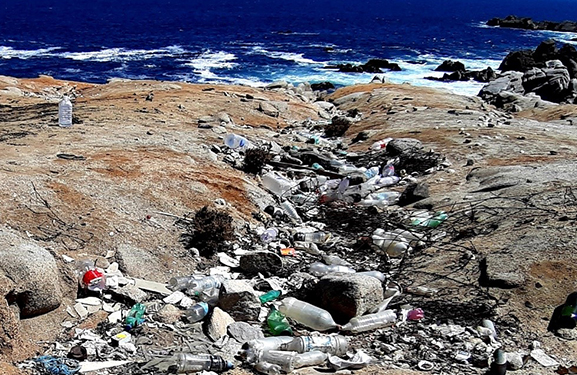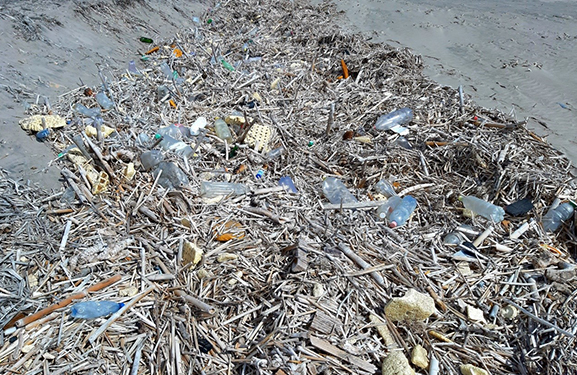
21. May 2019
Chile – active today for a better tomorrow

The Chilean Ministry of the Environment has commissioned RIGK to produce a waste management plan for the coastal protection zone of Isla Grande de Atacama
Chile has the second longest coastline of all countries in the world. 83,000 km stretch along the Pacific Ocean, from the polar regions to desert areas and the neighbouring ocean islands, archipelagos and fjords. This unique natural environment houses some of the most opulent and bio-diverse ecosystems of all the oceans and coasts around the world.
In recent years the conservation policy that has been adopted by Chile has seen unprecedented growth and has taken up the fight against pollution of the environment. Today, almost 38% of the marine and land area is subject to ecological and socio-economic sustainability values. These kinds of marine reserves are promoting maintenance of biodiversity, the protection of endangered marine life, the reduction of utilization conflicts, the establishment of research and educational institutes and the sustainable development of commercial and leisure activities.
Of the 10 marine protection areas in Chile (Áreas Marinas Costeras Protegidas MCPA) the area where Isla Grande de Atacama is located is particularly important because of its ecological and cultural wealth and touristic value. It includes paradise beaches, a unique wetland at the mouth of the Copiapó River and an island with an important colony of Humboldt penguins whose population has reduced noticeably in the last decade. Isla Grande de Atacama has been developing attractive destinations for tourists thanks to its sandy beaches and the beautiful phenomenon of the ‘blooming desert’ and also appeals especially to sport fishermen. This region is one of the marine protection areas in Chile that is most exposed and most affected by environmental pollution because of its geomorphology and its tourism potential. The main problem is the accumulation of waste, the majority of which is plastic.

This situation prompted Chile’s Ministry of the Environment to commission a study in order to evaluate the problem of coastal waste. This was to include:
- The risks for natural and cultural heritage;
- The development of a waste management plan that
- Enables the coexistence of the different utilization groups
RIGK’s experience with the sustainable return of plastic waste; its commitment to the principle and initiatives of the EU and some private companies regarding the reduction of plastic occurring in the oceans and on the coastlines of the world; the work and recognition of more than 3 years in Chile and the proposed methods were the decisive factors why the Chilean Ministry of the Environment selected RIGK Chile to take responsibility for the development of the study and the preparation of the management plan for Isla Grande de Atacama.
The project, which began recently, is at the stage of stocktaking and diagnosis: intrinsic causes such as fishing and tourism and external reasons such as beached plastics from the coast region can be recognised from the analysis of the users, the visitors and the type of waste.
The study by RIGK Chile represents a methodical contribution to the solution of a significant global problem. As it comprises the first waste management plan for a Chilean coastal area it will form the basis for a model that can be applied to other shore areas. Thus the situation today is actively tackling a sustainable tomorrow.
Further information:
RIGK GmbH
Jan Bauer
General Manager RIGK Chile SpA
Phone: +49 611 308600-16
bauer(at)rigk.de